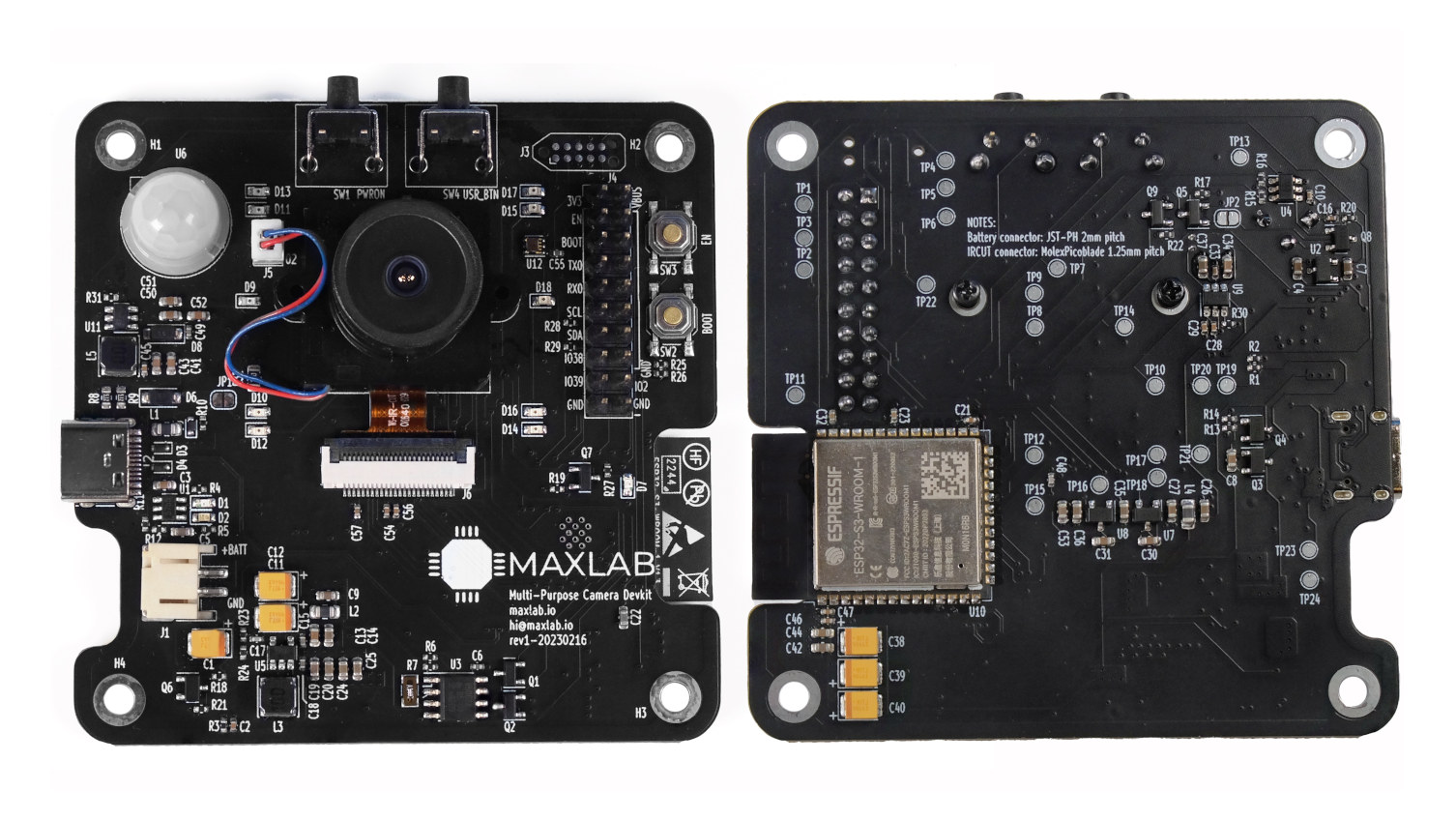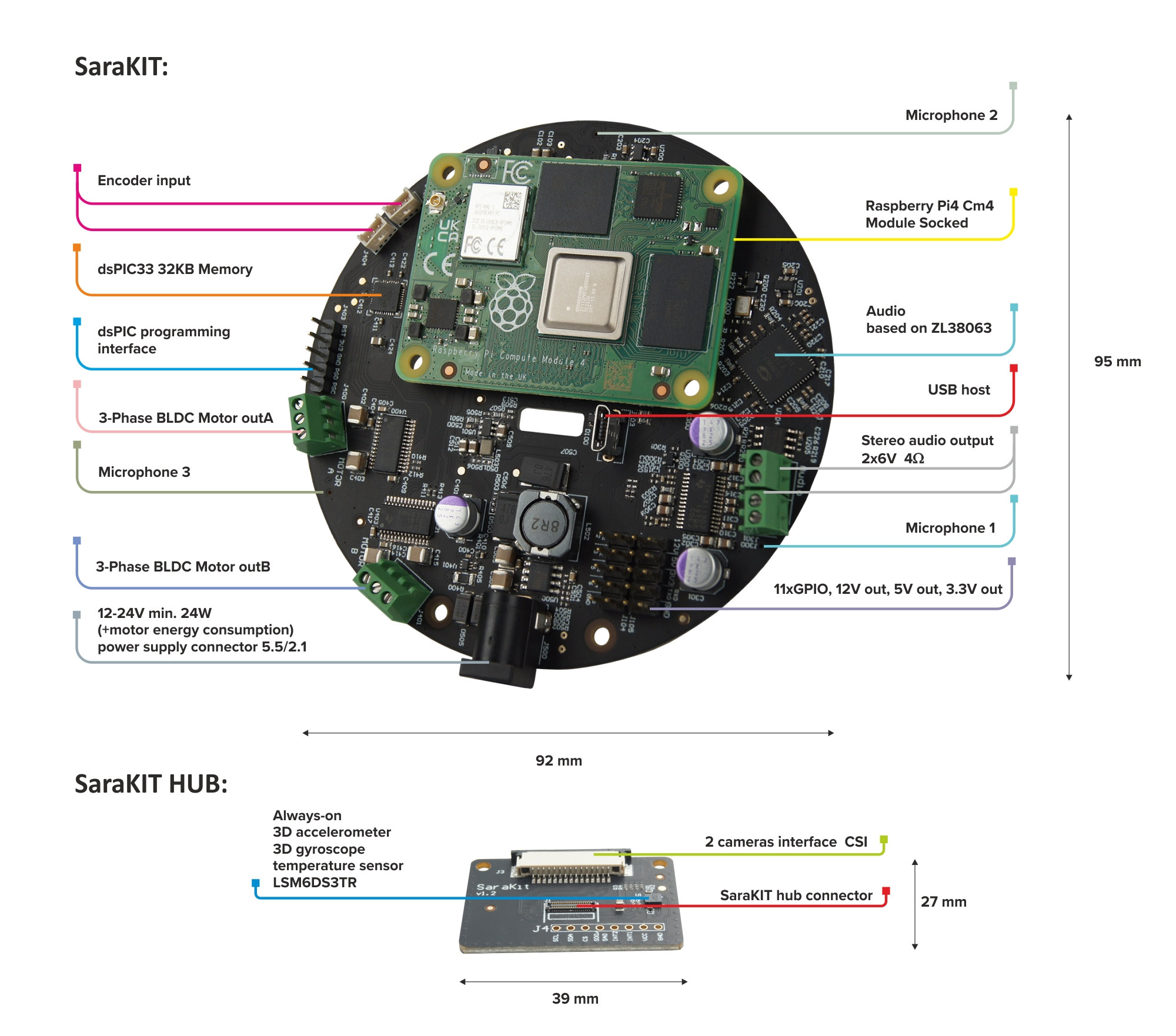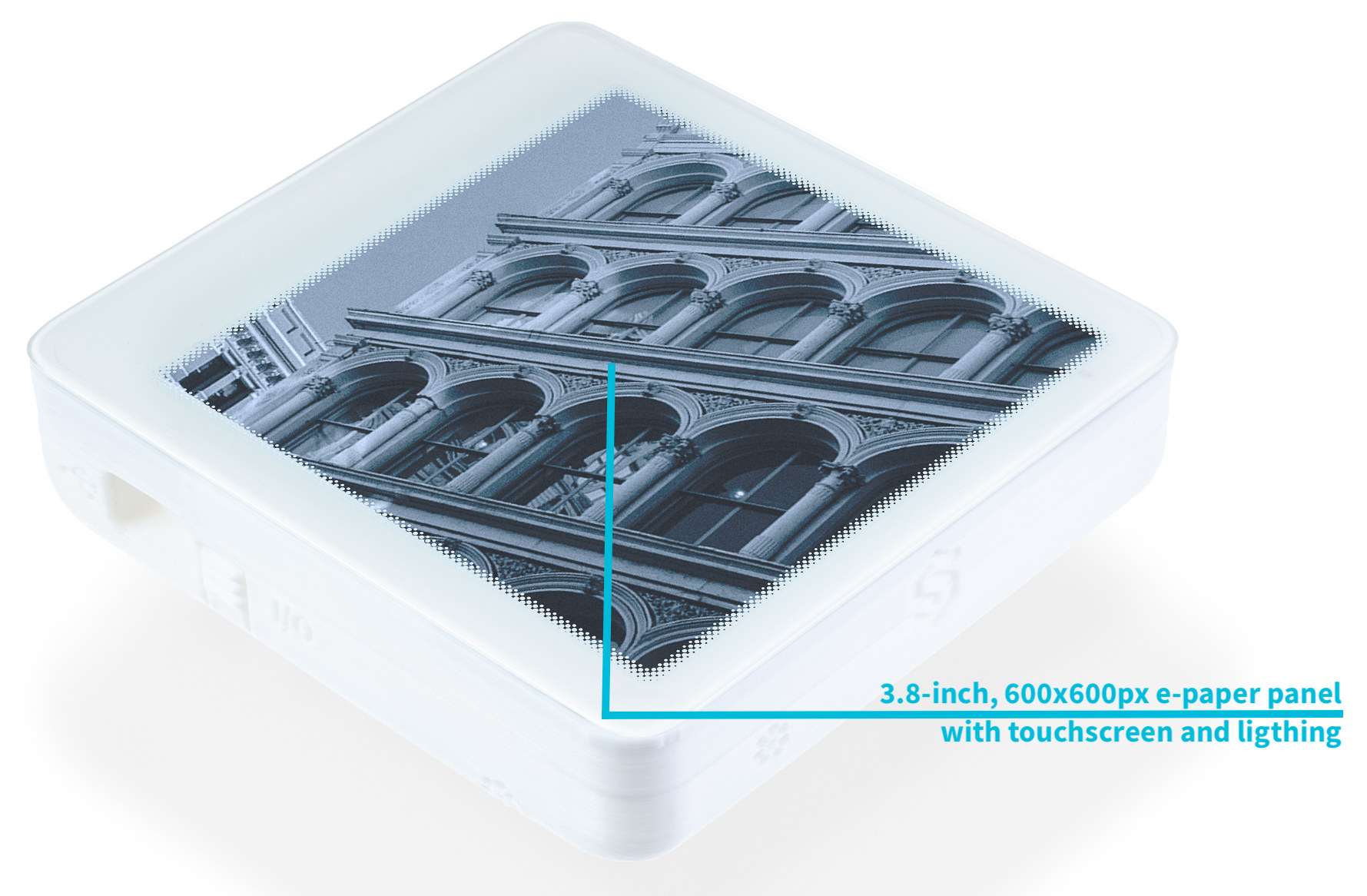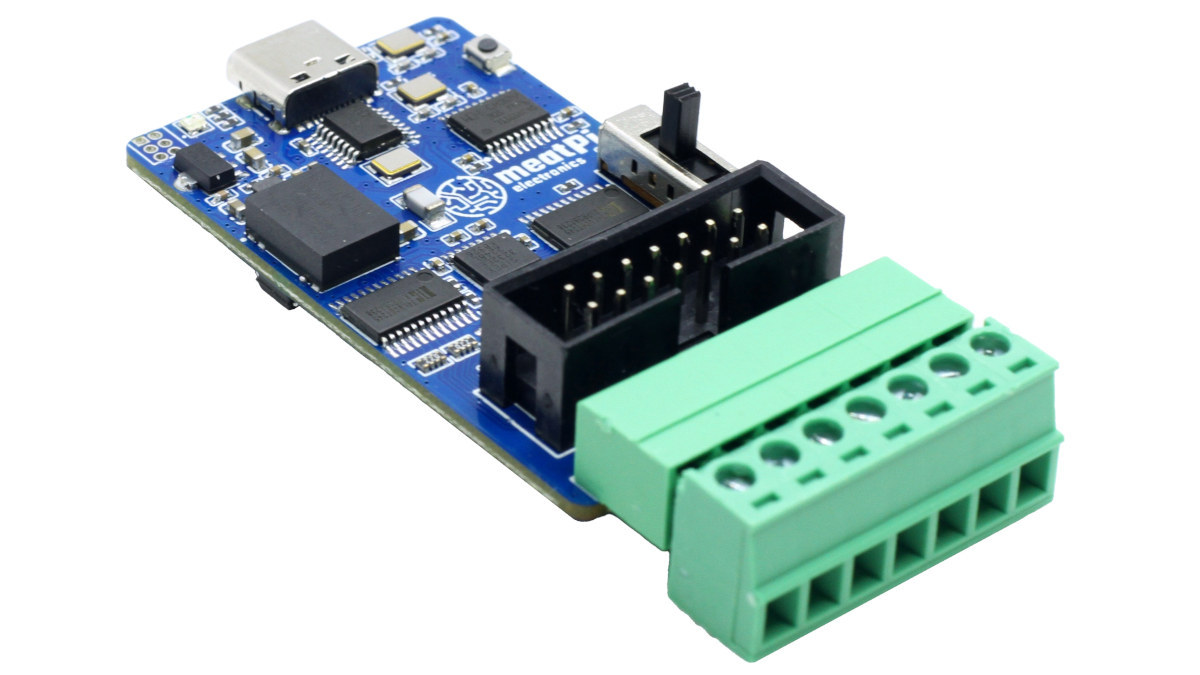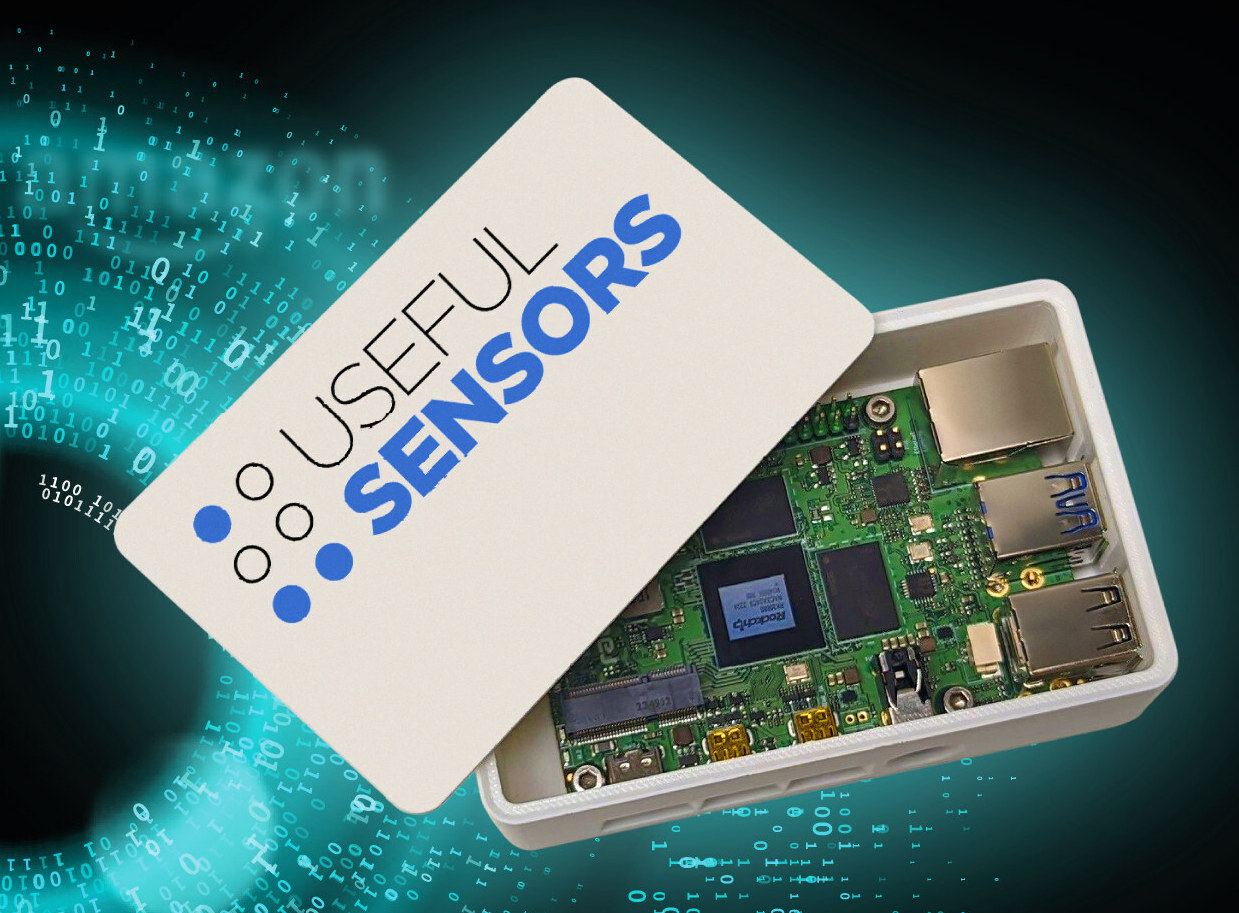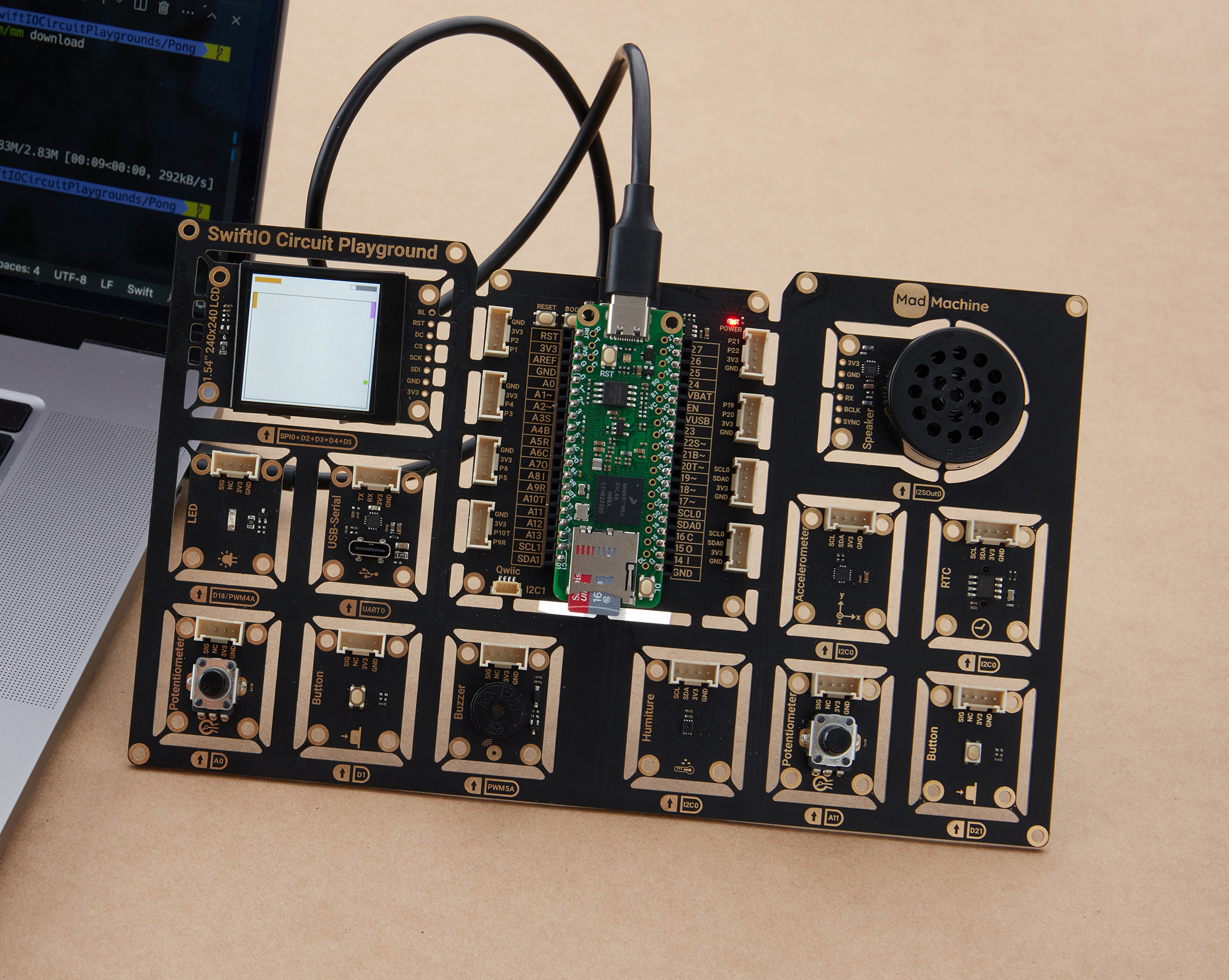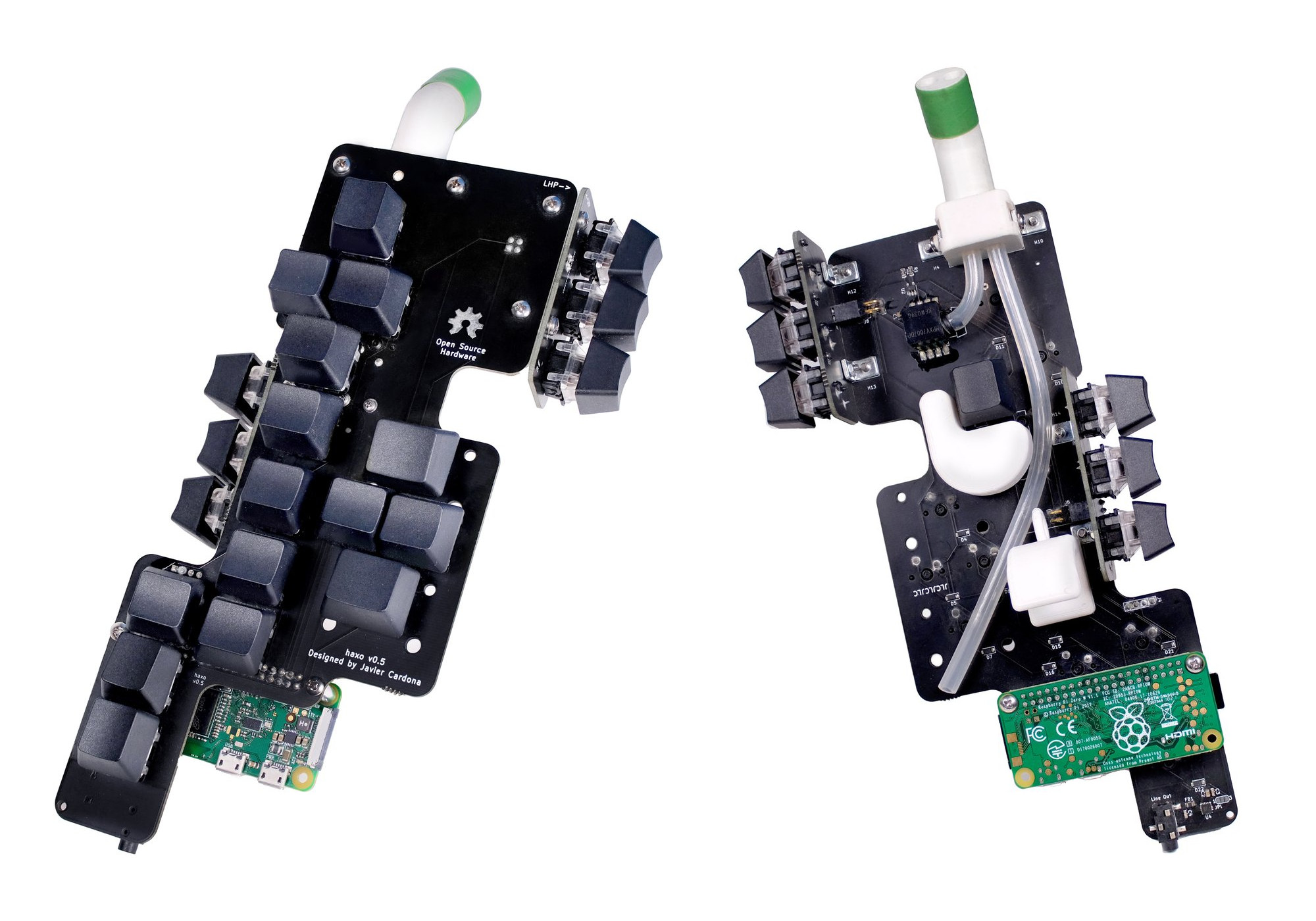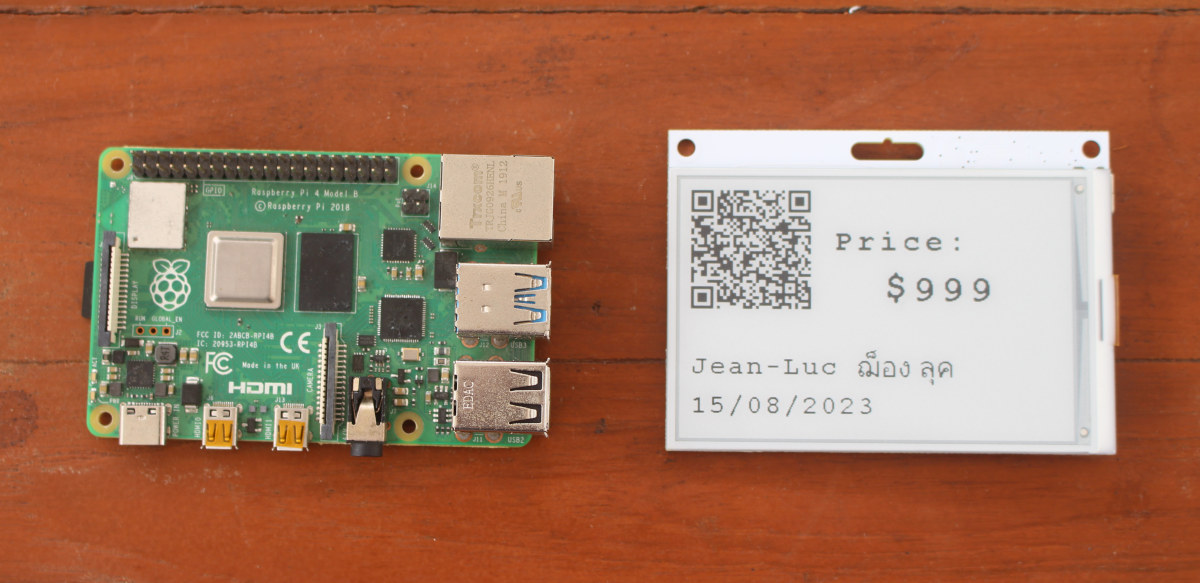Maxlab’s Tokay Lite is an OHSWA-certified AI camera based on ESP32-S3 WiFI and Bluetooth SoC that can be used for computer vision (e.g. facial recognition & detection) and robotics applications without the need to know programming languages since a web interface is used for configuration. The WiFi and Bluetooth AI camera also features night vision with four IR LEDs, an IR cut filter, light and PIR motion sensors, a 20-pin expansion connector with SPI and UART, support for an external RTC, and can take power from USB-C or a LiPo battery. Tokay Lite specifications: Wireless module ESP32-S3-WROOM-1 MCU – ESP32-S3 dual-core LX7 microprocessor @ up to 240 MHz with Vector extension for machine learning, 512 KB SRAM Memory – 8MB PSRAM Storage – 8MB SPI flash Connectivity – WiFi 4 and Bluetooth 5 with LE/Mesh PCB antenna Certifications – FCC/CE certification Camera OV2640 camera sensor (replaceable) via DVP interface Image Capabilities: […]
SaraKIT – An Raspberry Pi CM4 board with ChatGPT-based voice control, motor control, and plenty of sensors (Crowdfunding)
SaraKIT is a carrier board for the Raspberry Pi CM4 system-on-module with BLDC motor controllers and a range of sensors for robotics, support for ChatGPT-based voice control through three microphones and a ZL38063 audio chip, and two MIPI CSI connectors for cameras. The versatile board can be used for voice-controlled products, robots, home automation systems, and interfacing with smart home or office devices. The company also developed various demos such as a Smartphone-controlled LEGO RC car, a self-balancing LEGO robot, a pan-and-tilt camera, various AI demos using MediaPipe such as face tracking and object detection, as well as audio demos using ChatGPT, Alexa, and/or Google Home. SaraKIT specifications: Support system-on-modules – Raspberry Pi Compute Module 4 (CM4) with future CM5 compatibility. MCU – Microchip dsPIC33 16-bit microcontroller with 32 KB SRAM for motor control and LSM6DS3TR sensor Audio Microchip ZL38063 (previously MicroSemi) audio processor for microphone arrays. 3x Knowles SPH0655 […]
Inkplate 4 TEMPERA ePaper display supports ESPHome, Arduino, and MicroPython (Crowdfunding)
Years after years, Soldered Electronics keeps on churning out new ESP32-powered ePaper displays and the latest model is the Inkplate 4 TEMPERA with a recycled 3.8-inch e-paper touchscreen with 600×600 resolution and plenty of sensors and features for a device of that size. The InkPlate 4 TEMPERA comes with a frontlight, a gyroscope, an accelerometer, temperature, humidity, air quality, and gesture sensors, Wi-Fi and Bluetooth connectivity, a built-in battery, and a low-power operating mode. Inkplate 4 TEMPERA specifications: Wireless module – ESP32-WROVER-E with ESP32 dual-core microcontroller with Wi-Fi 4 & Bluetooth 4.0 connectivity Memory – 8MB PSRAM Storage – 4MB flash PCB antenna Storage – MicroSD card slot Display (ED038TH2) 3.8-inch 3-bit grayscale (black, white, and six shades of gray) ePaper display with 600 x 600 pixels resolution Refresh rate 0.18s partial refresh rate in 1-bit (B&W) mode 0.86s full refresh mode in either 1-bit or 3-bit modes Multi-point touchscreen […]
Ollie v2 USB to UART/CAN/RS485/RS232 converter gets USB-C port, plastic enclosure, and more (Crowdfunding)
Ollie v2 is an improved version of the Ollie USB to isolated UART, CAN Bus, RS232, and RS485 converter that gains a USB-C port, a plastic case, the ability to set the voltage from the target board, and various other minor improvements. Like the first version, the Ollie v2 is a portable tool designed for hackers and field engineers that allows them to work with a single device instead of a bunch of USB converters, each handling a single protocol, and isolation makes sure the host, such as a laptop, is protected from high voltages. Ollie V2 specifications: Serial chip – WCH CH344 quad-serial port chip (instead of XR21V1414 in the first design) Host interface – USB Type-C port Isolated interfaces (all with ESD protection) 2x UART ports up to 6 Mbps with 1.8/3.3/5 V or target voltage levels (set by slide switch) CAN 2.0A/B up to 1 Mbps bus […]
AI in a box offline LLM solution leverages Rockchip RK3588S’ NPU (Crowdfunding)
Useful Sensors “AI in a box” LLM (large language model) solution works offline with complete privacy and leverages the NPU in Rockchip RK3588S processor for conversational AI similar to ChatGPT but without an internet connection or registration required. The AI box prototype currently relies on off-the-shelf hardware, specifically the Radxa ROCK 5A SBC with 8GB RAM, housed in a plastic enclosure, and the code relies on open-source models like Whisper speech-to-text model and Llama2 language models. Besides conversational AI where you can interact with the box as if you were talking to a person, the AI in a Box can also be useful for other use cases: Live Captions – The box can display subtitles/closed captions for a live event or help in situations where people have trouble hearing a conversation using the audio input. Live Translation – It can also translate various languages close to real-time. Simply select […]
SwiftIO Circuit Playground relies on Apple Swift programming for IoT projects (Crowdfunding)
A few years ago, Mad Machine introduced the SwiftIO board powered by an NXP i.MX RT1052 Arm Cortex-M7 crossover processor and programmable with Apple Swift programming language. The company has now launched a smaller version of the board named the SwiftIO Micro along with the SwiftIO Circuit Playground baseboard with plenty of modules to play with the SwiftIO Micro’s GPIO, and that reminds me of the Arduino Sensor Kit Base but with even more modules. SwiftIO Micro specifications: SoC – NXP i.MX RT1052 Arm Cortex-M7 crossover processor @ 600MHz System Memory – 32 MB SRAM Storage – 16MB flash, microSD card slot USB – 1x USB-C connector for power and programming Expansion – 3x 20-pin headers with up to 44 GPIOs, analog inputs, PWM, UART, SPI, I2C, I2S, CAN Bus, etc… See the pinout diagram below for details Misc – RGB LED, download and reset buttons Power Supply – 5V […]
Haxophone – A Raspberry Pi-based electronic saxophone with mechanical keys (Crowdfunding)
The Haxophone is an unusual Raspberry Pi expansion board that transforms the popular SBC into a travel saxophone using mechanical keys. The hackable musical instrument is open-source hardware and OSHWA certified and comes with mechanical keys which makes it easily repairable, customizable by changing keycaps or the firmware, and at a price point cheaper than commercial digital saxophones with custom molded keys. Haxophone key features and specifications: Custom Raspberry Pi HAT PCB Tactile-feedback 5-pin mechanical switches Mechanical keycaps Airflow pressure sensor Built-in audio amplifier compatible with Raspberry Pi Zero and Zero W Serial console for hacking Weight – 180 grams OSHW certifications – PT000005 You’ll find KiCAD hardware design files, assembly instructions, documentation, and the software and firmware used with the Haxophone on GitHub. There are two main software components, first haxo-rs Rust-based driver for detecting key presses and breath in order to convert them into notes, and fluidsynth synthesizer […]
Mini review of GGtag e-paper display programmable through sound or USB serial
GGtag is a 3.52-inch e-paper display based on the Raspberry Pi RP2040 microcontroller and programmable through sound or USB serial from your web browser, plus it also supports emulation of 125 kHz RFID tags (ASK and FSK). When Radoslav Gerganov contacted me about the upcoming Crowd Supply campaign for the GGtag e-paper badge, I happened to have just discussed using an e-paper display to sell some samples on Facebook Groups where requirements include using the seller’s name and date in the photos. So I asked for a sample if any were available, and I just received it today… GGTag specifications: MCUs Raspberry Pi RP2040 dual-core Cortex-M0+ microcontroller @ 133 MHz with 264KB SRAM Microchip ATtiny85 8-bit AVR microcontroller (used for RFID) Storage – 2 MB flash Display – 3.52-inc e-paper display with USB – 1x USB Type-C port for power and serial programming Sensor – PDM digital microphone for data-over-sound […]


